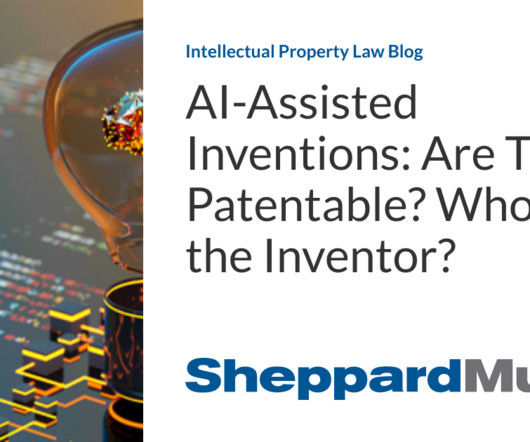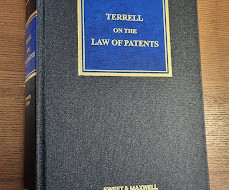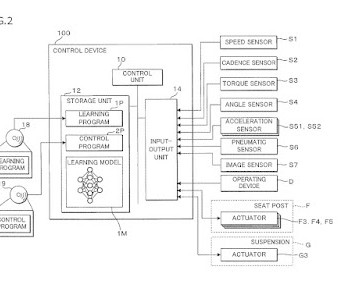AI-Assisted Inventions: Are They Patentable? Who is the Inventor?
Intellectual Property Law Blog
FEBRUARY 14, 2024
Generative artificial intelligence (AI) may change how we invent: many envision a collaborative approach between human inventors and AI systems that develop novel solutions to problems together. Such AI-assisted inventions present a new set of legal issues under patent law. On February 13, 2024, the U.S. Principle No.












Let's personalize your content